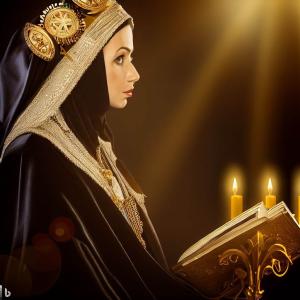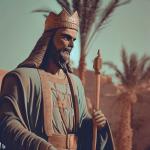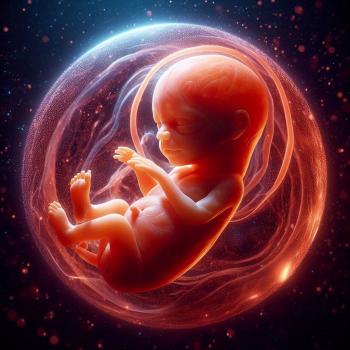
Esau had three wives according to The Torah: Basemath Judith and Mahalath. Basemath and Judith were Canaanite women. Mahalath was the daughter of Ishmael. Two of these women caused his parents grief. The other was called Holy One and restored a broken family.
Basemath and Judith: A Source of Grief
Genesis 26:34-35 says that Esau married two Cannnite women when he was 40, Judith and Basemath. The text records that the women “were a source of grief to Isaac and Rebekah.” This should not be shocking as we see earlier in Rebekah’s story that she confided to Issac that if Jacob married a Canaanite woman they would destroy her. Obviously, Rebekah had a dislike of the Canaanites. Perhaps this was to do with their attitude, as the story seems to suggest, but we might also assume that she believed the foreigners would lead her son into idolatry. Whatever the cause, Rebekah and Issac were not pleased with the choice Esau had made for wives.
Esau Repents and Marries Mahalath
In Genesis 28:8-9 we get an interesting tale. Esau sees Jacob get blessed by his parents with the order not to marry a Canaanite. Therefore, he realizes how much distaste Rebekah and Issac have for the Canaanite women he has married, Basemath and Judith. So, he marries the daughter of Ishmael, Mahalath.
This shows us that even though Ishmael was sent away from Abraham, the two tribes of Abraham still intermarried. Thus, we must ask ourselves if there is truly a division between the two. Of course, it was Jacob and not Esau who received the blessing and later became Israel. Yet, we see that Rebekah and Issac approved of this union.
Competing Versions of the Story
The Midrash tells us two competing versions of this story. One is that Esau’s marriage to Mahalath is him repenting of the heartache he has caused his parents. By marrying her he returns to them and their faith. This theory seems most likely from a straight reading of The Torah. This is because The Torah records in Genesis 28:8-9 “ Esau then realized how displeasing the Canaanite women were to his father Isaac; 9 so he went to Ishmael and married Mahalath…”
The other theory offered by the Midrash is that this is part of a plan by Esau to murder Issac and Jacob. The argument for this is that he did not divorce the Canaanite women. Rather, he remained married to all three, Basemath, Judith, and Mahalath. Had he truly repented, he would have divorced them. I feel this is a weak argument and is not supported by The Torah. Further, I believe it was a virtuous act on the part of Esau to not divorce the women. In that time a divorced woman had no way of supporting herself. Therefore, Esau chose to not make his wives pay for his poor decision-making.
A Healed Family
Esau indeed makes peace with Jacob later. Jacob offers him many gifts fearing that Esau will not welcome him, but Esau tells him to keep what he has and only accepts the gifts after Jacob begs him. Esau, it seems, had long forgiven Jacob. This should be the story we teach and remember. Even though his brother sneakily stole his blessing, Esau welcomed him back. Family forgives the unforgivable. Forgiveness is what G-d requires of us.
Mahalath: Holy One
The Midrash tells us that Esau’s behavior changed for the better because of his marriage to Mahalath, whose name means Holy One. This too is a lesson. We often think of Ishmael’s line as “a wild ass of a man,” but here his daughter is remembered in our Holy Text as Holy One. Let us remember that all people have both good and bad, holy and unholy.
Even more shocking, Holy One is a term we would normally reserve for G-d himself. Yet, here our Rabbis have chosen to call Mahalath by this sacred title. We must then appreciate just how virtuous and good this woman was. Though she earned only one line in The Torah, she was given a title of the highest, because of her virtue.
When we remember Mahalath, let us remember that though separated and distant family is always family, that brother should forgive brother, and that a Holy woman has the power to change the heart of a rough man. Let us remember that an in-law may heal a broken family. When we remember Mahalath, may we remember to honor our Mother and Father. Let us remember family and love when we hear the name Mahalath, Holy One.
Esau had three wives, Basemath, Judith, and Mahalath, but only Mahalath had the ability to heal a broken family. A Holy Woman is worth more than gold. She heals whatever she touches. Through her, all things are restored.
Please stay tuned for the continuation of The Women in The Bible series. Click here and subscribe to the newsletter to be informed when new articles are published. Our guest blogger, Joseph Parks, will return next week to continue his series on ancient Egypt. You do not want to miss this.


















